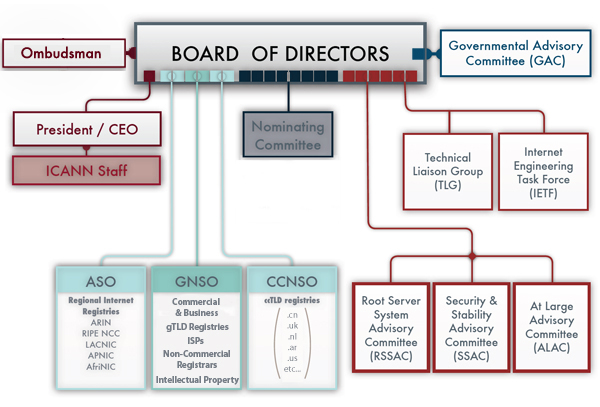ICANN (almost) Independence Day
It has been many years that complains from all over the world (China, UE ...) have been growing over the (virtual and real) world about one of the last internet regulatory entity directly owned by the US. But Oct 1st, 2009 a more independent agreement was celebrated with praised and was welcomed with a sense of long battle finally won. The European commissioner for information society and media Viviane Reding "welcomed US move to more independent, accountable, international internet governance.”
Image taken from ICANN.org
What Does It Do Anyway?
ICANN was formed in 1998 under the George W. Bush Administration. It is a not-for-profit public-benefit corporation dedicated to keeping the Internet secure, stable and interoperable. ICANN manages the Domain Name System (DNS), deciding on what names can be added to the Internet's top-level domains such as .com and .org. According to Wikipedia “ICANN is responsible for managing the assignment of domain names and IP addresses”
But Managing Is Not Owning
Now, ICANN manages the assignment and IP addresses, but does not own them. In reality NTIA (National Telecommunications and Information Administration) controls all root domains on the Internet. The NTIA is an administrative agency of the United States Department of Commerce, and can decide to not follow ICANN suggestions about new top level domains, and can still put in top level domains, or remove them, without ICANN involvement at all. ICANN rents top domains (at an expensive cost) that NTIA controls.
So What?
This is a very important battle that was won by the international community over the US Department of Commerce, but certainly not the war. The next steps would be to transfer the top domain ownership out of the Department of Commerce, execute on the new agreement to ease procedures for adding domain name suffixes and expanding the number of generic top-level domains, and finally to allow the use of other languages for Internet addresses.
The next ICANN meeting will be sitting in Seoul at the end this month, no doubt that the governance topics will be hot again on the planet internet.

